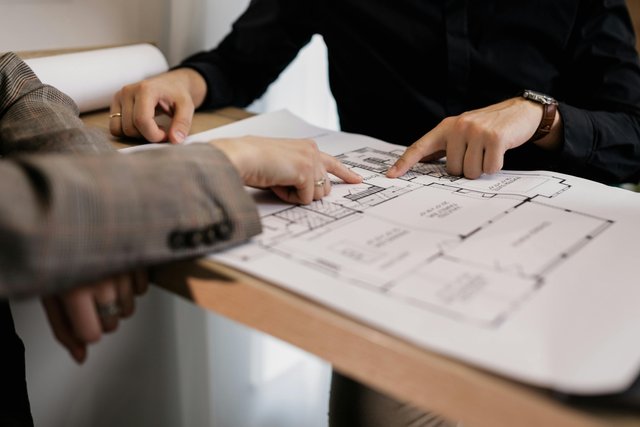Permits, Plans, and Approvals: Navigating the Pre-Construction Phase in Boulder County
Introduction
Before a single shovel hits the dirt or a blueprint becomes a frame, homeowners in Boulder County must navigate one of the most important and often misunderstood phases of the construction process: pre-construction. This critical stage includes zoning checks, permit applications, engineering reviews, energy compliance, and neighbor notifications—and it can dramatically affect your project’s timeline, cost, and outcome.
In a region with progressive energy standards, strict environmental protections, and variable terrain, the pre-construction phase is far more than a formality—it’s the foundation of a successful build or remodel. This article breaks down what to expect during pre-construction in Boulder County and how to streamline the process for a smoother project journey.
- Why Pre-Construction Is Crucial in Boulder County
Boulder County is known for its:
Complex zoning overlays
Advanced energy and sustainability codes (BuildSmart)
Wildfire mitigation standards in WUI zones
Height and bulk plane limits to preserve views
Watershed and floodplain development restrictions
Strong neighborhood engagement on design compatibility
Each of these elements is evaluated before construction begins—and skipping or mishandling one can lead to costly delays or redesigns.
- Step 1: Zoning and Site Feasibility
Before you design anything, you’ll need to determine:
What’s allowed on your lot (maximum floor area, height, setbacks, lot coverage)
Whether your home lies within a special zoning district (e.g., hillside development zone, historic overlay)
If your lot has special conditions like steep slopes, wetlands, or wildfire risk
Zoning codes differ between City of Boulder, unincorporated Boulder County, and smaller cities like Louisville or Lafayette—so local jurisdiction matters.
- Step 2: Design and Architectural Planning
Once zoning is confirmed, the design phase begins. Key components include:
Site plan showing setbacks, grading, and building placement
Architectural plans for floor layouts, rooflines, window placements, and elevations
Landscape plan if required for approval
Exterior materials list to ensure design compatibility in regulated neighborhoods
In many Boulder County jurisdictions, conceptual plans must be reviewed by city planners or design review boards before you can submit for permits.
- Step 3: Engineering and Specialized Reports
Depending on your site and scope, your project may require:
Structural engineering (for new construction or major remodels)
Soil analysis or geotechnical reports (especially in foothills or flood-prone areas)
Wildfire mitigation plan for properties in Wildland-Urban Interface (WUI) zones
Drainage or grading plan for properties on slopes
Energy modeling to comply with BuildSmart or Boulder Green Building codes
These reports are usually required for permit approval and must be created by licensed professionals.
- Step 4: Energy Code Compliance (BuildSmart and More)
Boulder County and many of its cities have adopted advanced energy codes that go beyond the state minimum. You may need to provide:
Home Energy Rating System (HERS) analysis
Mechanical system sizing and specs
Solar readiness or installation plan
Insulation and air sealing details
Material and waste diversion strategy
Compliance must be documented and submitted before or with your permit application. Some jurisdictions also require third-party raters or energy consultants.
- Step 5: Submitting for Permits
Permit applications typically include:
Zoning verification
Full construction documents
Site-specific reports (engineering, energy, etc.)
Contractor license and insurance information
Deconstruction documentation (for teardowns in City of Boulder)
Permit fees and valuation estimates
Permit review timelines vary:
Jurisdiction Average Permit Review Time
City of Boulder 8–12 weeks (can extend to 4+ months)
Unincorporated Boulder Co. 6–10 weeks
Lafayette / Louisville 4–8 weeks
Keep in mind: Incomplete submissions can restart the clock.
- Step 6: Neighborhood Notification or Review
For projects in certain areas (like historic districts or near open space), public notice may be required. This can include:
Letters to adjacent property owners
Posting a notice sign on the property
Public hearings or design review board meetings
It’s important to anticipate and prepare for neighbor feedback—especially for second-story additions or significant lot changes.
- Step 7: Permit Issuance and Pre-Construction Meeting
Once your permits are approved, you’ll receive a “green light” to begin construction. Some jurisdictions also require:
A pre-construction meeting with building inspectors
Posting of permits onsite
Erosion control or tree protection installation
Utility locates and excavation approval
At this point, your general contractor or builder mobilizes crews and finalizes schedules.
- Tips to Streamline the Pre-Construction Process
Start early: Pre-construction can take 3–6 months before you build anything
Hire local professionals: Architects, engineers, and builders familiar with Boulder codes can prevent delays
Keep neighbors informed: Early communication reduces resistance
Expect iterations: Revisions may be required after initial plan review
Build in buffer time: Planning ahead for delays can keep your overall project on track
Conclusion
In Boulder County, pre-construction is a multi-layered process that ensures homes are built responsibly, safely, and sustainably. While it may feel overwhelming, approaching this phase with a structured plan and expert guidance will help protect your timeline, budget, and vision.
For homeowners ready to build or renovate in Boulder County, success starts long before construction—it starts with preparation, compliance, and collaboration.
